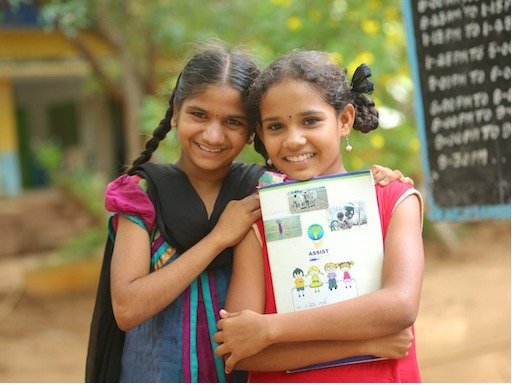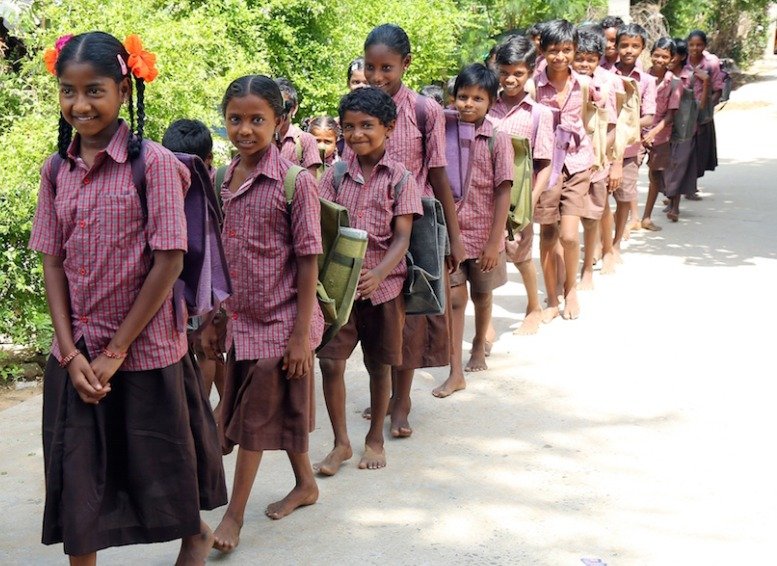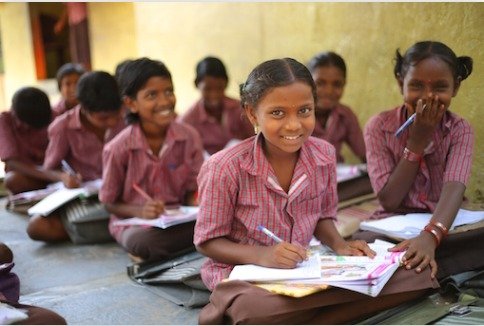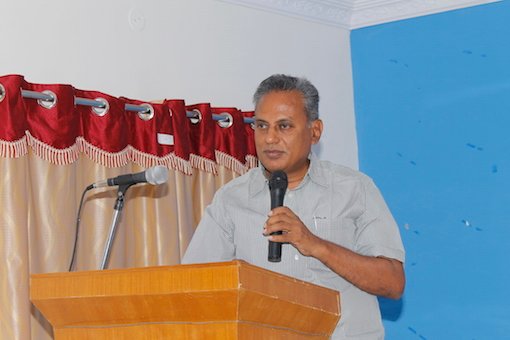K S.R. Murthy is the Executive Director of ASSIST India. He talked to Rusen Kumar, Editor, India CSR on how ASSIST empowers the poor by creating self-sustaining People’s Organisations. From the very conception of ASSIST, he is convinced that development in India can only take place when its most underprivileged members can fight with strength, courage and confidence for their own political, economic and social needs. He believes that rural communities, when given a chance, can find solutions for their problems and bring positive change to their own lives, and those of future generations. He says, “ASSIST has transformed thousands of lives by committing itself to the poorest of the poor”.
Excerpts of an interview:
Please provide a detailed background of ASSIST and the core ideologies behind their approach for various initiatives.
ASSIST is a registered non-governmental organisation working for the development of poor and marginalised communities in rural areas of Andhra Pradesh and Telangana, India. It was founded in 1985 on the principle that development in India can only take place in proportion to the development of Village-India. For more than three decades, ASSIST has transformed thousands of lives by committing itself to the poorest of the poor, in areas where no other NGO has gone before. It helps the most underprivileged members of society, but it does so with a difference. The organisation’s proven and sustainable approach focuses on the comprehensive development of its target communities.

The core ideology of ASSIST’s lies in empowering the poor by creating self-sustaining People’s Organisations. We believe that people should decide on their development programmes, and that ASSIST should only act as a facilitator. To ensure sustainable development, the democratically elected leaders of these organisations receive training in all necessary aspects to take up responsibility for the activities initiated by ASSIST. Drawing on a wealth of experience, ASSIST has created a comprehensive community development strategy to break the cycle of poverty in rural areas in a sustainable and integrated manner.
How do you operate in terms of systematic development process across educational, infrastructure, and economical front?
The whole development process consists of three critical phases:
- Socio-Educational Development: In this first phase, we provide primary importance to the active involvement of our target groups to make them aware of their own needs. We sensitise the people by a series of interventions that promote awareness, community sense and confidence. By forming, educating and strengthening People’s Organisations at the community level, we help the people to strive for their sustainable development independently.
- Infrastructure Development: Once we have created awareness on critical development issues and the People’s Organisations can respond to the problems of their community, they are encouraged to address them and take up infrastructure development activities. With the support of ASSIST and the local Government, they improve their living environment by building proper houses, sanitary facilities, water sources, schools, health centres, internal roads, etc.
- Sustainable Economic Development: All the efforts in the first two phases to improve the living conditions of its target groups are linked with income-generating activities to enhance their economic status. To lift young people out of poverty, ASSIST facilitates skill development in a wide variety of professional fields. The profits of land-based activities are improved by creating sustainable means of production. By increasing and optimising livelihood opportunities for families, we motivate parents to send their working children to school instead of sending them to work. People’s Organisations play a critical role in this phase of the development process. Once a community has identified solutions to its economic problems, these organisations take up activities for further sustainable development.
The whole process is monitored weekly in cluster meetings, and monthly in area meetings and coordinators meetings. During these meetings, we ensure to review the performances and measure the impact of our various programmes executed in the areas.
What interventions you have undertaken so far to eliminate the child labor of these tobacco growers?
Child labour is a social evil that not only steals the innocence from a child’s formative years but also takes away any form of opportunity to develop and grow into an educated human being. Many children in poor communities in rural Andhra Pradesh have been missing the opportunity to get an education and chart the path towards a better future. Children in rural areas are being compromised on their right to care and education, given the large looming issues of poverty, illiteracy and lack of infrastructure.

ASSIST is working for the development of these poor and marginalised communities in rural areas, which has resulted in significant improvement in school attendance of children. This has become possible due to various programs being run by them which are directed at reduction and elimination of the use of child labour by tobacco growers. One such program is in collaboration with Philip Morris International (PMI) on “Prevention of Child labour and Rural Development in tobacco growing villages of Andhra Pradesh & Karnataka” which has been in place for almost a decade now. This program is focused on school infrastructure development to promote school attendance, income generation activities and building awareness.
What progress has been achieved so far as a result of this initiative?
It is ASSIST India’s endeavour in partnership with Philip Morris International (PMI) to support these underprivileged and underprovided children by aiding in the development of school infrastructure, ensuring they have access to education, equipping them with a skillset for a better life while safeguarding their exposure to the environment they work in. Our programme has been implemented in schools in Andhra Pradesh and Karnataka.

Children from 62 communities in 57 villages attend school regularly. Around 13,400 have started attending school regularly, thereby moving out of the farm workforce. Our awareness programs have reached out to over 4530 children through child-to-child workshops. Our awareness rallies and cultural programs involving over 12,650 children have sensitized around 78,000 villagers against child labour. Also, conducting ‘after school’ programs during peak growing season in over 45 schools have discouraged farmers from involving children in the farms.
We are pleased with how local communities have joined hands with us in spreading awareness against child labour and encouraging students to attend schools.
What is your vision for the next decade on child development and how do you plan to achieve further success to eradicate such upsetting issues like child labour?
From the very conception of ASSIST, we are convinced that development in India can only take place when its most underprivileged members can fight with strength, courage and confidence for their own political, economic and social needs. We believe that rural communities, when given a chance, can find solutions for their problems and bring positive change to their own lives, and those of future generations.

Our mission is to promote comprehensive community development through community action and participation. We believe that through such rigorous initiatives that we are currently taking care of, we will be able to continuously eradicate child labour as we further spread to other parts of the country. We endeavor to dedicate special focus to ensuring child development at all levels.
About the Author
Author is the founder and managing editor at India CSR, India’s Largest CSR Media company. He writes on CSR, Sustainability and Corporate Governance.

(India CSR)







